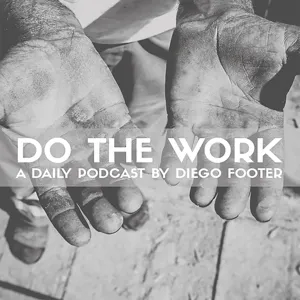Podcast Summary
Implications of deposit guarantees and adequate capital in banking: Misunderstanding the role of capital in banking can lead to confusion about deposit guarantees and potential consequences for the industry.
Importance of adequate capital in the banking industry and the implications of implicit deposit guarantees. Principal Asset Management, as a real estate manager, employs a 360-degree perspective to identify compelling investing opportunities. During the banking crisis of the previous year, the Fed's actions guaranteed deposits beyond the FDIC limit, raising questions about the need for banks to operate as they are. Anat Admati, an economist and professor at Stanford Graduate School of Business, emphasizes that the capital banks hold is not what they physically possess but rather the equity funding investors provide. This misunderstanding can lead to confusion regarding the role of capital in banking and the potential consequences of implicit deposit guarantees. The conversation between Tracy Alloway and Joe Wasendahl on the Odd Lots podcast highlights the significance of these issues, which remain relevant despite being overshadowed by other developments.
Banks prioritize debt over equity due to their unique business model and subsidies: Banks' historical subsidies and bailouts enable them to rely heavily on debt and resist increasing equity, despite societal benefits of more equity funding
Banks operate differently than most corporations, prioritizing debt over equity due to their unique business model and the safety nets they enjoy. Despite public perception that banks should hold more equity and reduce leverage, banks themselves resist this idea due to the conflict of interest between equity holders and depositors. From a societal perspective, more equity funding is beneficial, but banks' reluctance to increase it stems from their historical subsidies and bailouts, which allow them to bear less risk and pay fewer taxes compared to other corporations. This dynamic results in banks' heavy reliance on debt and aversion to equity, creating a complex relationship between banks and their funding sources.
Bailout systems distort financial priorities: Bailout systems encourage debt financing over equity, distorting financial priorities and leading to insufficient equity and risks.
The compensation of bankers and the fixation on return on equity, along with various subsidies and bailout systems, encourage the prioritization of debt financing over equity financing and the demand for further leverage. The bailout system, which includes central banks making excessive loans, higher interest on reserves, and deposit insurance guarantees, can result in a distorted financial system where banks may prefer to avoid raising equity due to regulatory definitions of capitalization that ignore interest rate risk and allow for holding assets at par value. This can lead banks to sell assets and pay more on deposits when they face financial difficulties, ultimately highlighting their insufficient equity and the risks they've taken on.
Financial instability and the challenges for banks: Financial stability measures are vital, and the inability to raise equity can be a significant challenge for banks during economic instability, potentially leading to insolvency and bankruptcy.
During times of financial instability, assets can become worth less due to their long-term nature, big duration risk, and interest rate changes. When these assets are sold, losses must be recognized, which can make companies appear more insolvent. If they cannot raise equity to stay afloat, it can lead to insolvency and even bankruptcy. The inability to raise equity is a significant problem, as it limits the upside potential for the company and forces them to face the downside. The argument against higher capital ratios or more equity is that it could lead to less lending, but as one expert suggests, banks can still make loans by retaining their earnings. The stress test for these banks should be to raise equity and see what price investors are willing to pay. If the price is unattractive, it may be a sign that the business model needs reevaluation. Overall, the key takeaway is that financial stability measures are crucial, and the inability to raise equity can be a significant challenge for banks during times of instability.
Exposing the unique issues in banking: Economist Anat Admati's book criticizes banks' business models and regulators for allowing impunity, emphasizing the importance of understanding banking politics and its impact on finance.
Anat Admati, an economics professor, was motivated by her observations of the banking industry's unique ability to get away with questionable practices due to political and regulatory influences. This led her to write "The Banker's New Clothes: What's Wrong with Banking and What to Do About It," a book that criticizes the banks' business models and the regulators who allow them to operate with impunity. Admati's interest in the topic began when she noticed the drastic change in the banking industry and realized that what made banks different from other corporations was their ability to get away with bad practices. She felt a sense of duty to expose these issues to the public and worked on the book for several years despite facing challenges in getting her message out. The book, which has been updated with new material, emphasizes the importance of understanding the politics of banking and the significant impact it has on finance.
Maintaining equity ratios and addressing risks in shadow banking: Maintaining adequate equity ratios and addressing risks in both traditional and shadow banking systems are crucial for financial stability. The proposed Basel Endgame regulations are a step forward but more comprehensive reforms are needed.
That maintaining adequate equity ratios and reevaluating the use of risk weights are crucial steps towards creating a more stable financial system. The shadow banking system, which is not directly connected to the safety net and bailout system, actually funds with more equity and seems less prone to crises. However, a significant portion of shadow banking is still connected to the traditional banking sector, making it essential to address the risks in both systems. The proposed Basel Endgame regulations, while a step in the right direction, may not be enough to prevent future financial crises. It is essential to continue the conversation and push for more comprehensive reforms.
Criticizing Inadequate Financial Regulations: Speaker believes current financial regulations are ineffective, particularly during crises, and calls for bringing funding into equity markets as a solution, despite political challenges and limited changes expected
The current financial regulations, specifically those related to liquidity, are seen as inadequate and poorly designed according to the speaker. They believe these regulations put unnecessary costs on banks during good times and are essentially useless during crises. The speaker argues for bringing funding into markets, particularly equity markets, as a solution. The process of creating new banking rules involves a lot of politics and entrenched ways of thinking, and consensus is not always required. The speaker expressed frustration with the lack of clear and strong statements from regulators, offering their help to argue against flood claims. The proposed changes are expected to only tweak risk weights slightly, without addressing correlations, interest rate risk, or other issues.
Banks' reliance on cheap debt financing: Banks' preference for debt financing over equity can lead to instability and potential crises. Shifting towards more equity financing could help absorb losses and prevent future crises.
The banking industry is engaging in disingenuous tactics to maintain their reliance on cheap debt financing, despite the potential risks. This is leading to a concerning political environment filled with intense lobbying efforts. From a financial perspective, if banks were more equity financed, they could potentially be safer. However, there are implications for lenders to the bank as well. Deposits, which make up a significant portion of bank funding, are unique in that they have no collateral but are insured, making them an attractive target for lenders. This dynamic allows banks to continually borrow and favor new lenders over old ones, leading to a ratcheting up of borrowing and a race to maturity. Ultimately, the reliance on debt financing, rather than equity, can lead to instability and potential crises, as seen in the cases of Silicon Valley Bank and Credit Suisse. Instead of relying on more debt to solve debt problems, a shift towards more equity financing could help absorb losses and prevent future crises.
Discussing the benefits of higher equity-to-debt ratio in banking with Professor Anat Admati: Historically, banks had higher equity ratios before deposit insurance and central banks, and with more developed equity markets, investors would provide funding if prices were right. Ideally, banks should have more equity and less debt for safer lending and borrowing practices, and contingent capital could potentially strengthen balance sheets.
The banking industry could benefit from having a higher equity-to-debt ratio, as it would make the system safer and more resilient. This idea was discussed with Professor Anat Admati, who argued that historically, banks had higher equity ratios before the introduction of deposit insurance and central banks. She also pointed out that equity markets are more developed now, and investors would provide the necessary funding if the prices were right. Admati emphasized that her ideal banking system would have a lot more equity and less debt, allowing for safer lending and borrowing practices. She also touched upon the concept of contingent capital, which has been a topic of debate in the industry, and how it could potentially be used to strengthen banks' balance sheets. Overall, the conversation highlighted the importance of examining banks as regular businesses and considering the role of equity in their operations.
BDCs and other financial institutions outside the regulated system expanding in private credit industry: BDCs and other financial institutions outside the regulated system prioritize return on equity, potentially neglecting societal and taxpayer interests
Banks and financial institutions outside the regulated system, such as Business Development Companies (BDCs), may hold more equity and not be as systemically important due to the absence of depositors. These institutions are expanding rapidly in the private credit industry, doing similar things as banks but without the regulatory requirements and funding benefits. The focus on return on equity in the banking industry seems to prioritize the interests of executives and shareholders over society and taxpayers. This observation raises questions about the potential consequences of this obsession with equity and profits, and whether it aligns with the best interests of all stakeholders.






